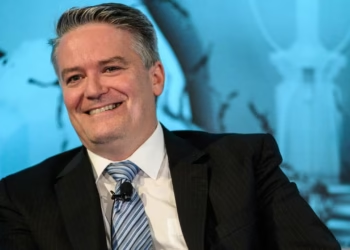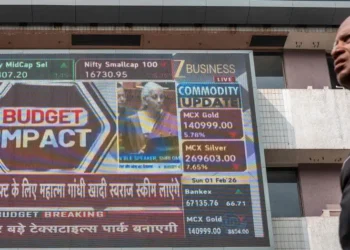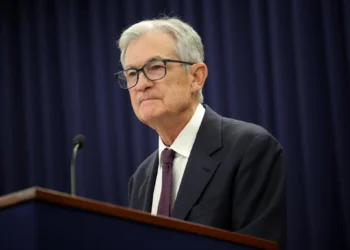TAIPEI (Realist English). Nvidia CEO Jensen Huang has sharply criticized U.S. export restrictions aimed at curbing China’s access to advanced AI hardware, calling the policy a strategic failure that has accelerated the rise of domestic Chinese competitors.
Speaking at a press conference during the Computex technology summit in Taipei on Wednesday, Huang said the export controls imposed by both the Trump and Biden administrations have had the opposite of their intended effect — prompting Chinese firms, led by Huawei, to intensify the development of their own AI chips.
“Four years ago, Nvidia had a 95 percent market share in China. Today, it’s only 50 percent,” Huang said. “The rest is Chinese technology. They have a lot of local tech they would use if they didn’t have Nvidia.”
Huang described the current environment as a direct result of U.S. policy missteps: “Chinese AI researchers will use their own chips. They will use the second-best. Local companies are very determined, and export controls gave them the spirit. Government support accelerated their development. Our competition is intense in China.”
Sharp consequences and strategic retreat
Nvidia’s warnings come in the wake of Washington’s decision in April to block the sale of its H20 AI chip — a customized, lower-performance product designed specifically to comply with previous U.S. export rules. The ban led Nvidia to record a $5.5 billion writedown, one of the largest single impacts of U.S. chip sanctions to date.
Huang reiterated that Nvidia has no current plans to develop a replacement for the H20 or release a new version of its Hopper architecture for China, noting that the chip had already been “degraded so severely” in response to earlier restrictions that further modification was no longer commercially viable.
Policy backlash from industry
Huang’s remarks add to a growing chorus of concern among leading U.S. technology executives who argue that export controls are undermining American competitiveness, while encouraging long-term self-sufficiency in rival nations.
While Washington continues to frame its semiconductor restrictions as a national security imperative — aimed at preventing China from using U.S. technology to power military-grade AI — the economic blowback to firms like Nvidia and AMD has become increasingly difficult to ignore.
China, meanwhile, has moved aggressively to invest in domestic semiconductor capabilities, with state-backed giants like Huawei and SMIC pushing forward with new AI chips despite manufacturing constraints.
Huang’s blunt assessment signals a shift in the tone of U.S. industry leaders, who have until now largely aligned with Washington’s geopolitical framing of chip controls. The Nvidia CEO’s comments reflect a deeper tension: between national security priorities and the commercial realities of a globalized AI ecosystem. As China doubles down on self-reliance, the U.S. risks not just ceding market share — but accelerating the very technological autonomy it sought to prevent.


















